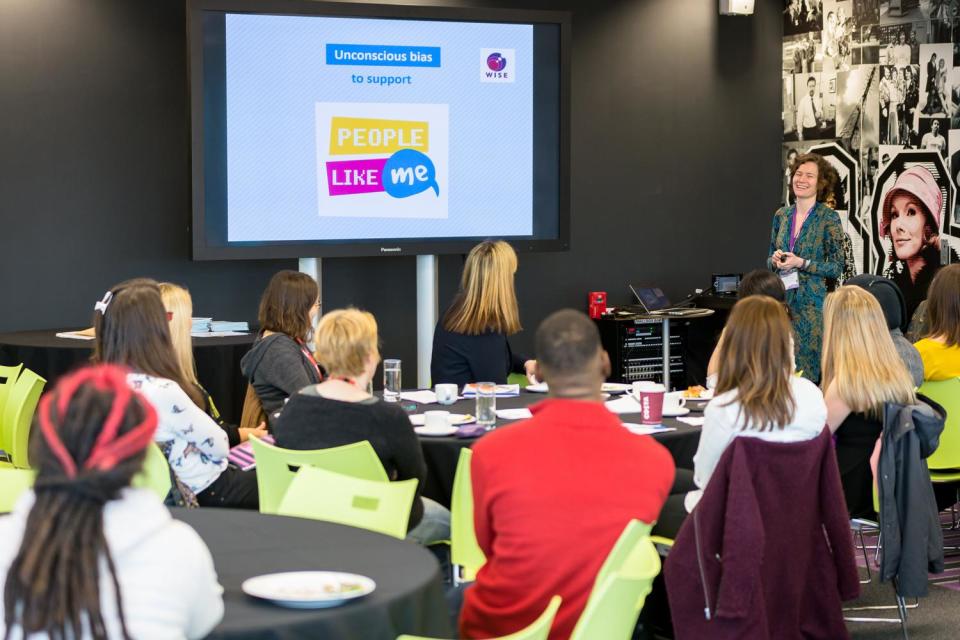People Like Me training platform wants to inspire more girls into STEM

Across the STEM (science, technology, engineering and mathematics) industries, it’s well known that more needs to be done to encourage girls to study these subjects at school and beyond.
According to research by the University of Roehampton in London, 30,000 fewer girls are studying key stage four level computing subjects now, compared to figures four years ago.
Movements across the UK are working to change this. The WISE Campaign, which focuses on achieving gender balance across STEM industries, is launching a new training platform to make it easier for companies to inspire girls into choosing STEM careers.
The People Like Me programme is part of WISE’s aim to empower girls to study things such as science and maths at school by introducing them to role models who are working in these fields. It focuses on girls aged 12 to 14, hosting workshops in schools at the age when girls are making subject choices for their GCSEs.
Since the programme launched in 2015, businesses have delivered sessions to over 6,500 girls around the country.
Evaluation by the Open University has found that after these sessions, 57 per cent of girls reported that they were now more interested in studying science and maths at school, showing that the programme is making a difference.
WISE’s CEO, Helen Wollaston has said the initiative has been tremendously successful so far. “It’s clear that delivering interesting and thought-provoking career-focused workshops to girls has resulted in an impact on the ambitions and interest in STEM among those who participated,” she said.

Sarah Atkinson, VP of communications at CA Technologies, which co-founded the initiative, said: “Having run many People Like Me sessions, we know that the unique aspect is that girls, teachers and their parents are exposed to our in-house teams who can explain face to face what it is like to work in these incredibly important roles, helping girls to identify with them and be inspired to achieve it for themselves.”
The campaign is optimistic for the People Like ME programme. It hopes to reach 200,000 girls by 2020.
As a result, it has developed a new online training platform. The platform will provide training materials for businesses so they can reach out to local schools to deliver training to teachers and reach teenage girls considering their future career options.
“This is yet more evidence that clearly demonstrates the need for us to come together and take action to reverse the situation. Failing to recruit girls into these subjects is not only limiting for the girls, as they miss out on great careers in exciting areas, but also represents a real threat to the UK economy,” said Wollaston.
“We want businesses to help us deliver the People Like Me resources which show girls that choosing computing, maths and physics will open doors to the jobs of the future.”
For more information about the People Like Me initiative, go to wisecamnpaign.org.uk

 Yahoo News
Yahoo News 